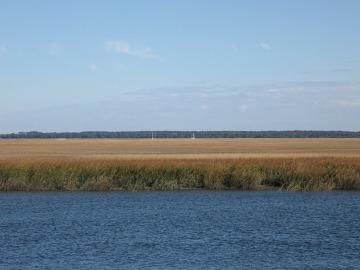
Section Branding
Header Content
South Georgia Maps Septic Tanks
Primary Content

Health officials are creating a map of septic tanks in three coastal-area counties.
It's part of a year-long, 11-county effort to clean up coastal rivers and wetlands.
Angela Bray of the South Georgia Regional Commission says leaky old septic tanks are one way pollutants can make their way into the environment and put our rivers on life support.
"We need to keep up with the data that we get to know when these septic systems are failing," Brays says. "If these systems are failing, then they cause fecal coliform to impair our waterways."
But the potential polluters are invisible to state officials.
"We need to find out how many septic systems are actually in our area," Bray says. "We have no clue."
The map is funded by a $100,000 dollar grant from the US Environmental Protection Agency.
Dwain Butler of the Southeast Health District says workers are using GPS to pin thousands of points on the map.
"There have been a handful of systems that looked like they might not have been functioning properly," Butler says. "We've worked with the owners about getting a repair permit and having the system corrected."
Butler says workers have identification from the public health department and will ask permission before entering private property.
Coastal-area counties from Effingham to Camden already have been mapped.
Brantley, Wayne and Charlton are expected to complete the project this summer.
Bray say the map could lead to more money in the future to help fix failing septic tanks.
Tags: coastal Georgia, U.S. Environmental Protection Agency, fecal coliform, GPS, GPBnews, orlando montoya, wetlands, rivers, septic tanks, South Georgia Regional Commission, Southeast Health District, Angela Bray, Dwain Butler
